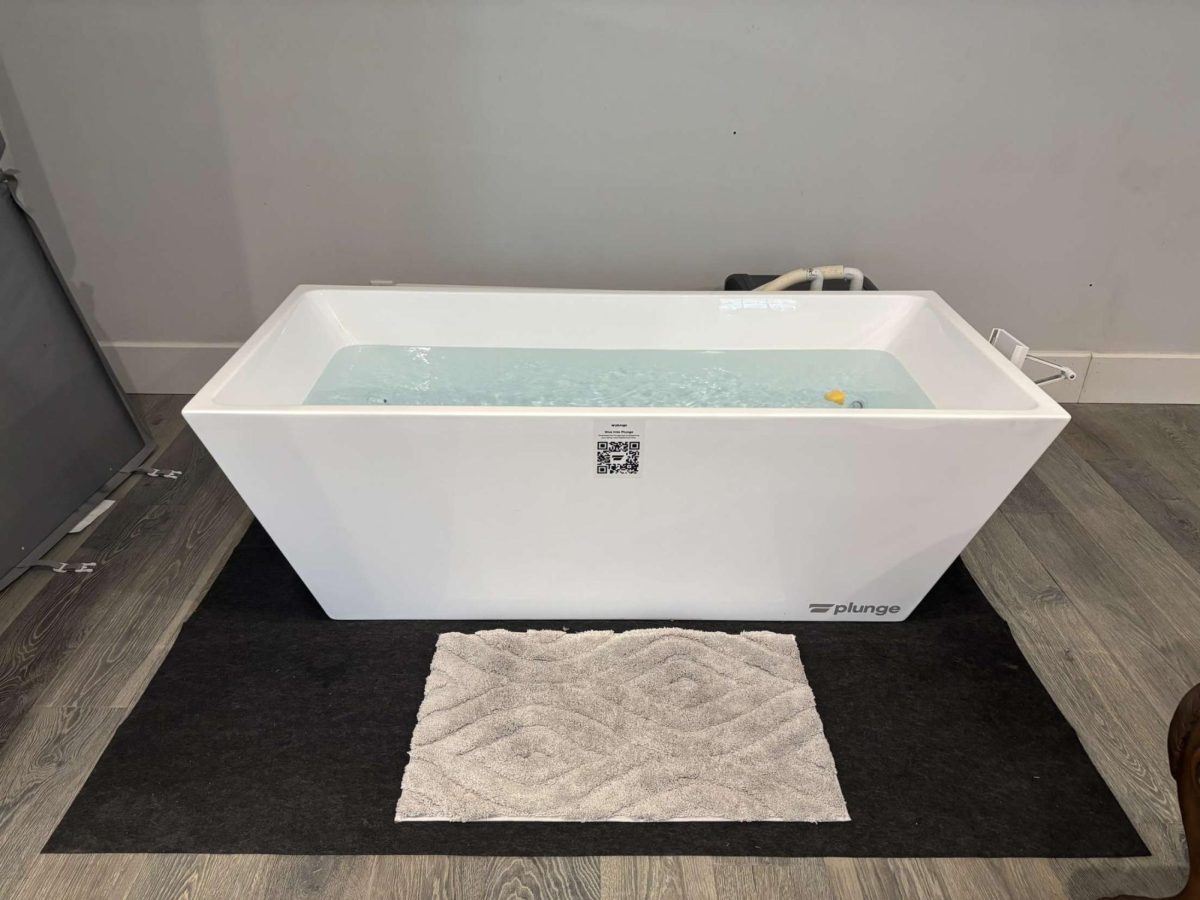Dating back to 3500 BC, cold plunge therapy has been used for relaxation and medicinal purposes. The process of cold plunge therapy involves partially or completely submerging oneself into cold water for a few minutes at a time.
Cold water immersion is a popular form of therapy due to its many psychological and physical benefits. This immersion has been seen to boost immunity, reduce inflammation, reduce muscle soreness and improve circulation, mood and recovery.
Athletes are among the most common users of cold plunge therapy. With the amount of erosive damage that sports can cause the body, cold water immersion can be a vital part of an athletes routine.
“I had seen a couple videos on it [cold plunge therapy]. An old teammate of mine used to do it all the time, he would go between that cold plunge and the sauna, and he had said it has a lot of benefits,” Jake Finnegan, senior baseball player, said.
Many scientific studies have shown that cold plunge therapy can boost levels of dopamine and endorphins, resulting in increased happiness and an improved attention span.
“I do it early in the morning and it helps to get my mind ready for the day and keeps me focused and more aware throughout the day,” Finnegan said.
When cold plunges occur at 57 degrees Fahrenheit and below, it can cause a 250% increase in dopamine levels and a 530% increase in noradrenaline levels. Dopamine is a neurotransmitter that acts on the part of the brain that is responsible for feeling motivation and satisfaction. Dartmouth Health has performed studies that have identified treating depression and improved mood.
“There’s the physiology piece, and you’re also connecting with others and nature,” Lucy Pilcher, MSW (Master of Social Work), and LICSW (Licensed and Independent Clinical Social Worker) at Dartmouth Hitchcock Medical Center said.
Another method to increase the effects of cold water immersion is to pair it with whole-body thermotherapy or sauna bathing. Cold water immersion prior to whole-body thermotherapy causes the blood vessels to constrict, resulting in elevated blood pressure and improved blood circulation.
“I used to have a sauna at my old house and after the sauna, I would jump into the cold pool in the winter,” Ahana Saadat, sophomore, said. “It was a rush of adrenaline and I always walked away feeling better than before.”
Cold plunge therapy can also assist with heart health. Bringing benefits such as decreased heart rate, blood pressure, and the stress hormone cortisol.
“The cold water is kind of shocking to your body at first, and then once you’re fully submerged, you have to control your breathing and heart rate,” Finnegan said. “It definitely makes me feel good about myself, it’s a really good feeling when you get out.”








